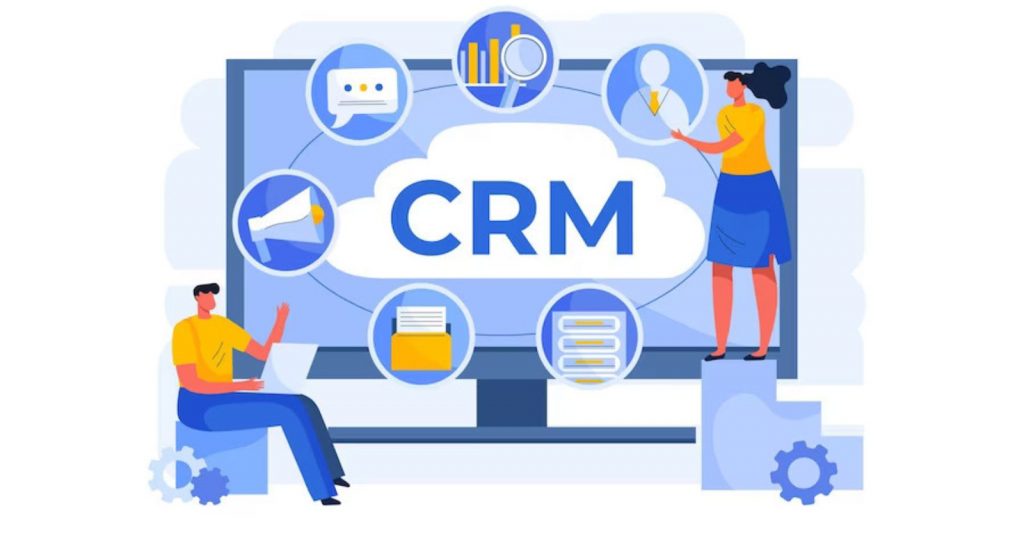Good customer relationship management is at the heart of every successful business. Without ensuring that your current customers are happy and loyal to your business, you can’t hope to achieve long-term business success.
That’s where good CRM software programs can help you. A good CRM platform is essential for managing customer relationships, boosting customer satisfaction, and improving processes.
This helps retain existing customers, get more repeat business, and improve customer lifetime value.
But given the number and variety of CRM software on the market, it’s difficult to choose one. That’s where this guide on how to evaluate a CRM will help you.
This guide provides a detailed CRM evaluation checklist to help businesses choose the right CRM solutions.
You May Also Like:
Factors to Consider When Choosing a CRM Solution
Here is a complete list of all the important CRM evaluation criteria you should consider when choosing a CRM software solution for your business.
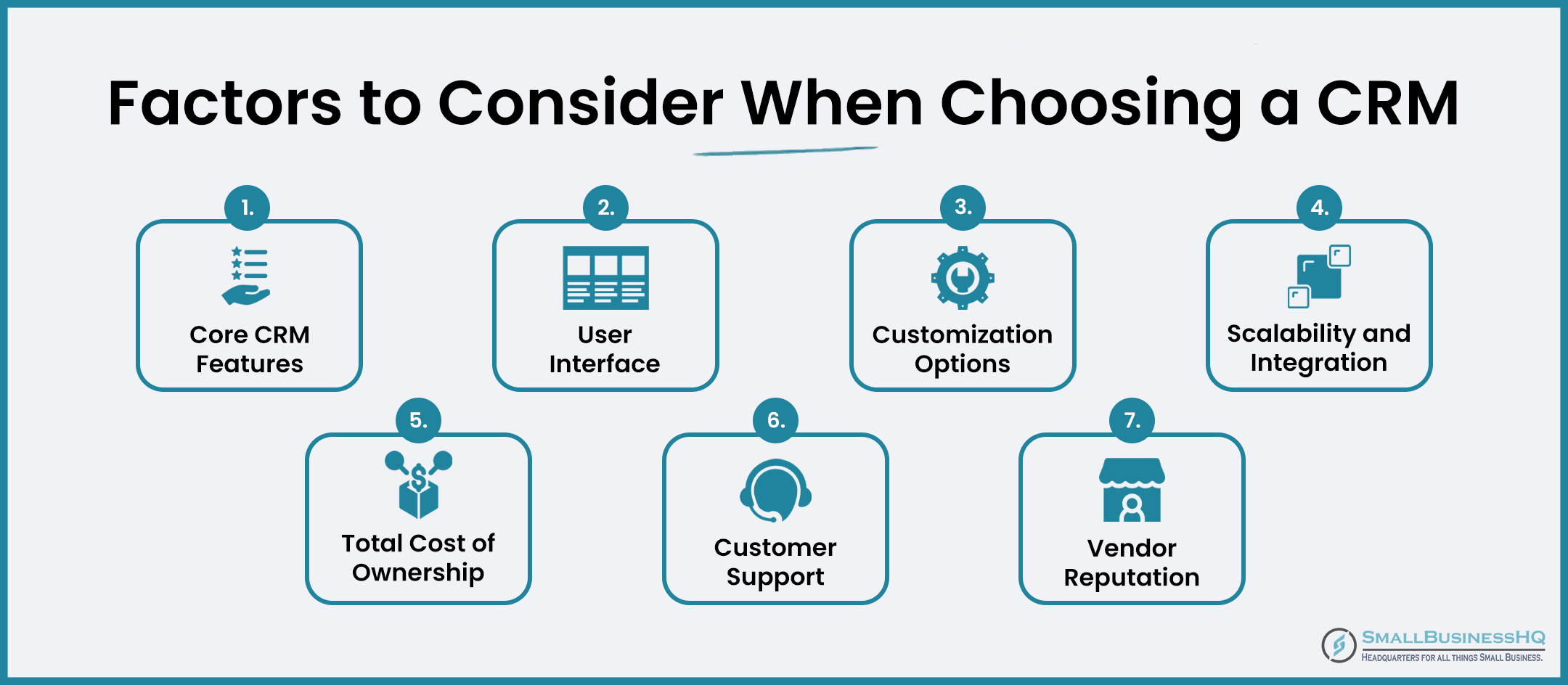
1. Core CRM System Features
While the add-on and advanced features may differ from one tool to the next, there are some essential features that all CRMs should have. You must compare these features thoroughly when you evaluate CRMs.
This is because different CRM solutions offer varying levels of workflow automation and integration capabilities for marketing campaigns and streamlining sales processes.
Here are the essential features you should look for to learn how to evaluate a CRM:
- Contact Management: Compare tools based on how well they centralize and organize customer information and how easy it is for you to get a 360-degree view of your customers. Here are some other aspects to consider:
- Interaction Tracking: Consider how well a CRM system tracks customer interactions and how easily it provides past customer history to sales or support executives.
- Segmentation and Tagging: Prefer CRM software solutions that provide basic and advanced tags to segment contacts. Compare the segmentation options provided by various tools when choosing a CRM solution.
- Duplicates Removal: CRM software should be able to identify and remove duplicate contacts and maintain high data accuracy. This is an important factor you should consider when you evaluate a CRM.
- Lead Management:Compare the lead capture, nurturing, management, and scoring features offered by various CRM solutions when you evaluate CRM software. A good CRM should be able to track leads across the sales pipeline and provide accurate lead information.
- Sales Automation: Most CRM software solutions offer sales automation features. Compare the level of automation provided and the ease of creating automated workflows when choosing a CRM for your business.
- Analytics: All types of CRM—collaborative, operational, or analytical—offer some form of customer and sales analytics. When you evaluate a CRM, consider your business needs and the type of CRM you need. Then, compare various CRM systems based on the depth and accuracy of analytics they provide. CRM with AI capabilities is preferred if you need robust analytical capabilities.
Please note that any additional features other than these are great to have, but not essential. We recommend that you make a list of any features that are a must for your business when you evaluate a CRM.
Check out this image to see a comprehensive list of essential CRM features.
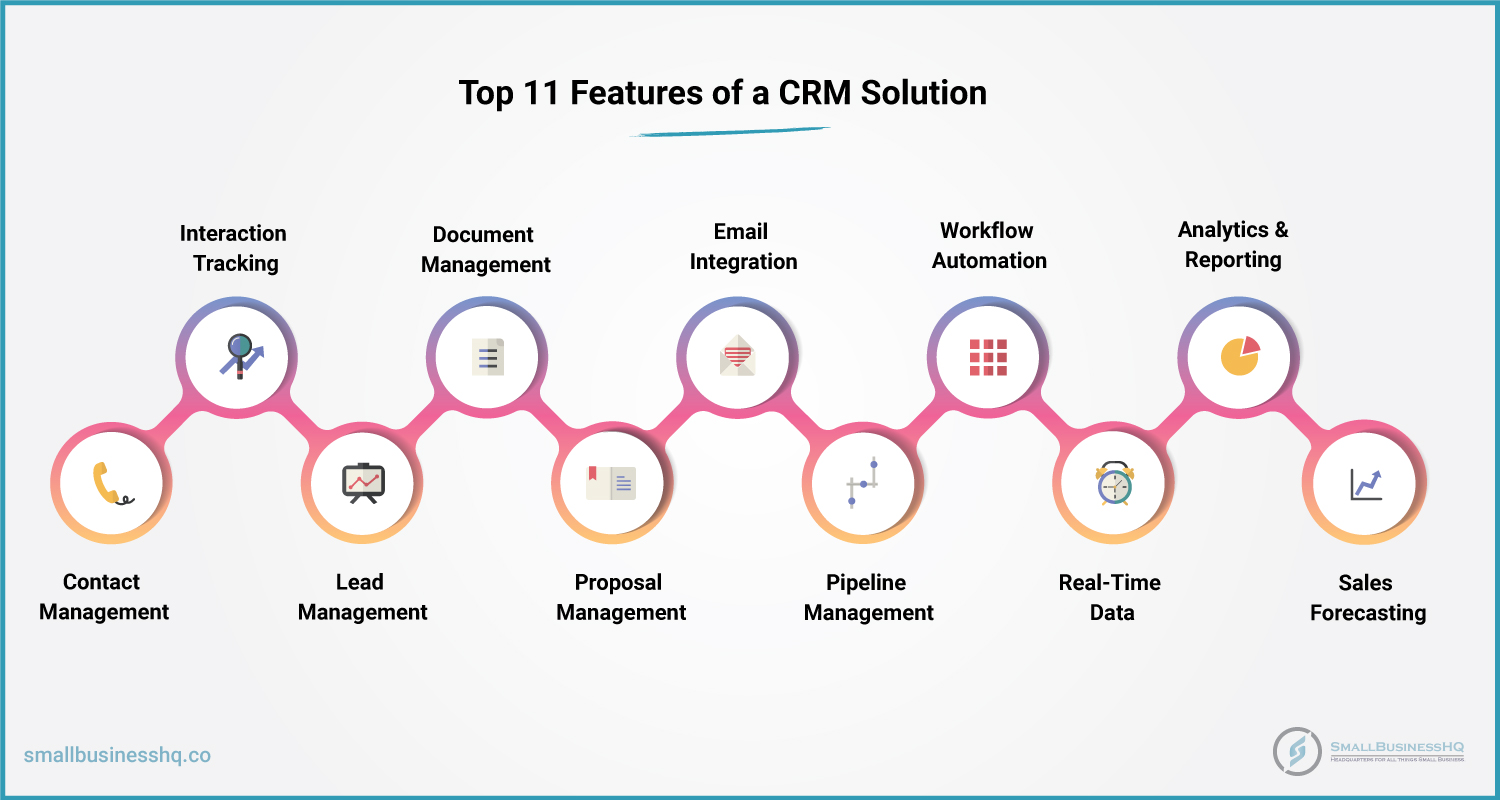
2. User Interface
When you evaluate a CRM, the user interface should be one of the most important things you need to consider.
Why?
Because a user-friendly, intuitive interface can help boost user adoption for you and your team, thereby helping you maximize CRM performance to your advantage. A clunky and outdated interface can make CRM implementation a hassle and cause resistance to change among employees.
Moreover, there’s no point in investing in a feature-rich software solution if you can’t use it to its full potential and reap the benefits of CRM. A poor user interface can make even a feature-rich CRM useless by making it difficult to use.
Here are some things to check for when you evaluate the user interface of a CRM:
- Navigation: How easy is it to find various features and how well organized they are under different menus and sub-menus?
- Design: Is the design simple and not confusing? Are the processes self-explanatory and you can easily use the various features of the system?
- Learning Curve: How long does it take for a new user to become proficient at using the CRM? Are there learning resources and tutorials available to speed up the process?
- Customization: Can you customize the dashboards to fit your needs? Are there options to add custom fields to customer profiles and other forms and features? How easy is it to make the CRM cater to your unique needs?
- User Feedback: Do the existing users find the CRM easy to use? Are there any known technical issues that bug the system and make it difficult to use? Are there any common CRM challenges that users face?
You May Also Like:
3. Customization Options
We’ve briefly touched on the importance of customization when it comes to learning how to evaluate a CRM in the previous section. In this section, we will go into detail on why it matters and how you can evaluate the customization options of a CRM system.
The gist is this:
The more customization options a CRM provides, the better you’ll be able to use it to meet your business goals.
Standard configurations and settings won’t work as well for every business. A good CRM solution should be able to adapt to the unique needs of every business.
The ability to customize and use a CRM to fit business needs is crucial for improving customer satisfaction and meeting business goals.
But how can you evaluate a CRM based on its customization options?
Here are a few aspects you can evaluate:
- Custom Data Fields: Give preference to CRM that allows you to add custom data fields in customer profiles, custom tags for segmentation, and more. The more options you get for customizing data fields the better.
- Tailored Workflows: When comparing different CRM software, make sure you check how much flexibility they offer when creating automated sales workflows.
- Custom Reports and Dashboards: Not all metrics are equally important for every business. The ability to create custom reports and customize the analytics dashboard to show metrics important to your business is an advantage.
Here’s an illustration showing things you should focus on when customizing your CRM.
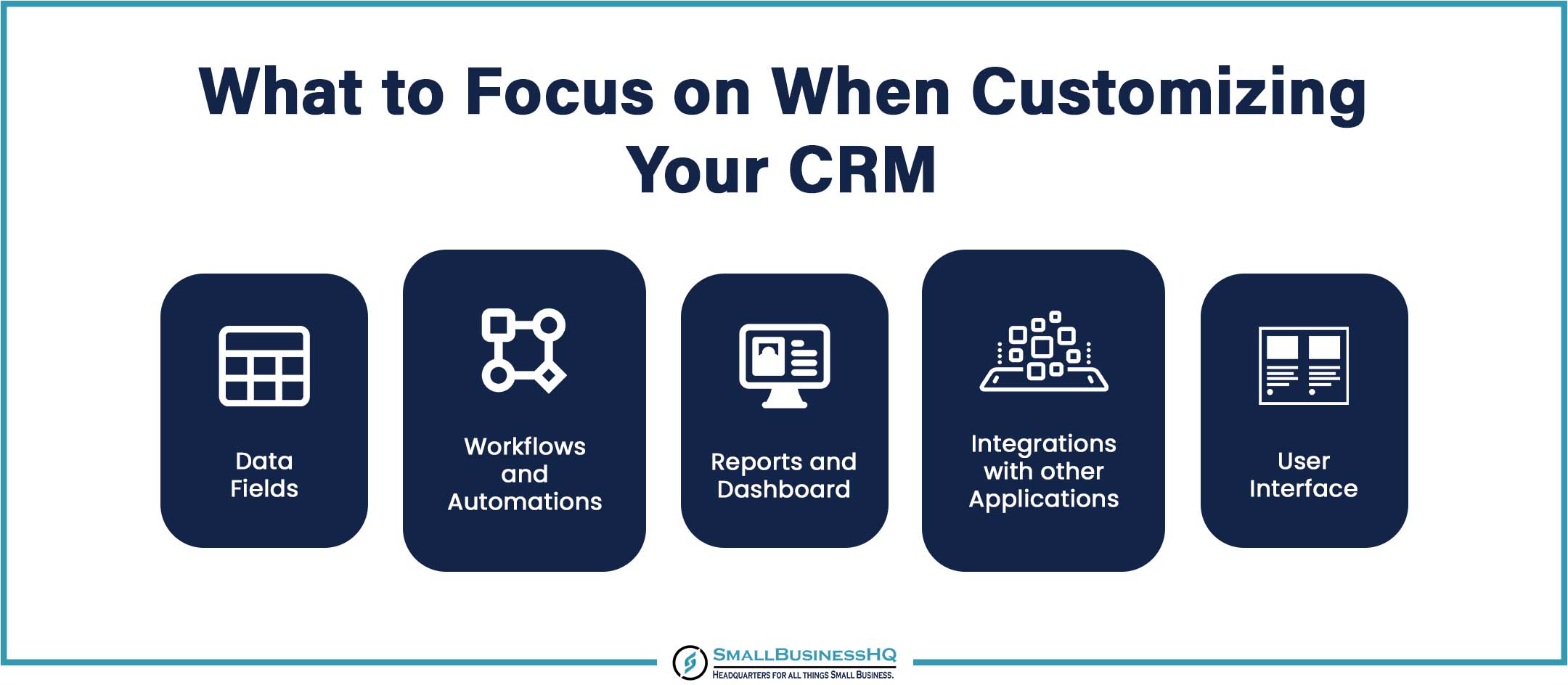
4. Scalability and Integrations
Another important criterion when you evaluate a CRM is how easy it is to scale it to meet the needs of a growing business. This is essential for the long-term success of a business.
Implementing a new CRM is a costly and tedious affair. As such, any new CRM you choose should be able to integrate with existing tools, like bookkeeping or accounting software, as your business expands.
So, even if your current needs are basic, you should invest in a CRM that can grow with your business and offer advanced features if needed.
Here are some things to evaluate:
- Pricing Plans: Does the tool offer tiered pricing to cater to different business needs? Is there an enterprise plan with unlimited usage limits for important features?
- Type and Number of Integrations: Evaluate whether a CRM can integrate with your existing text stack and how easily it can do so. There are three types of integrations and direct integrations are the most seamless and hassle-free.
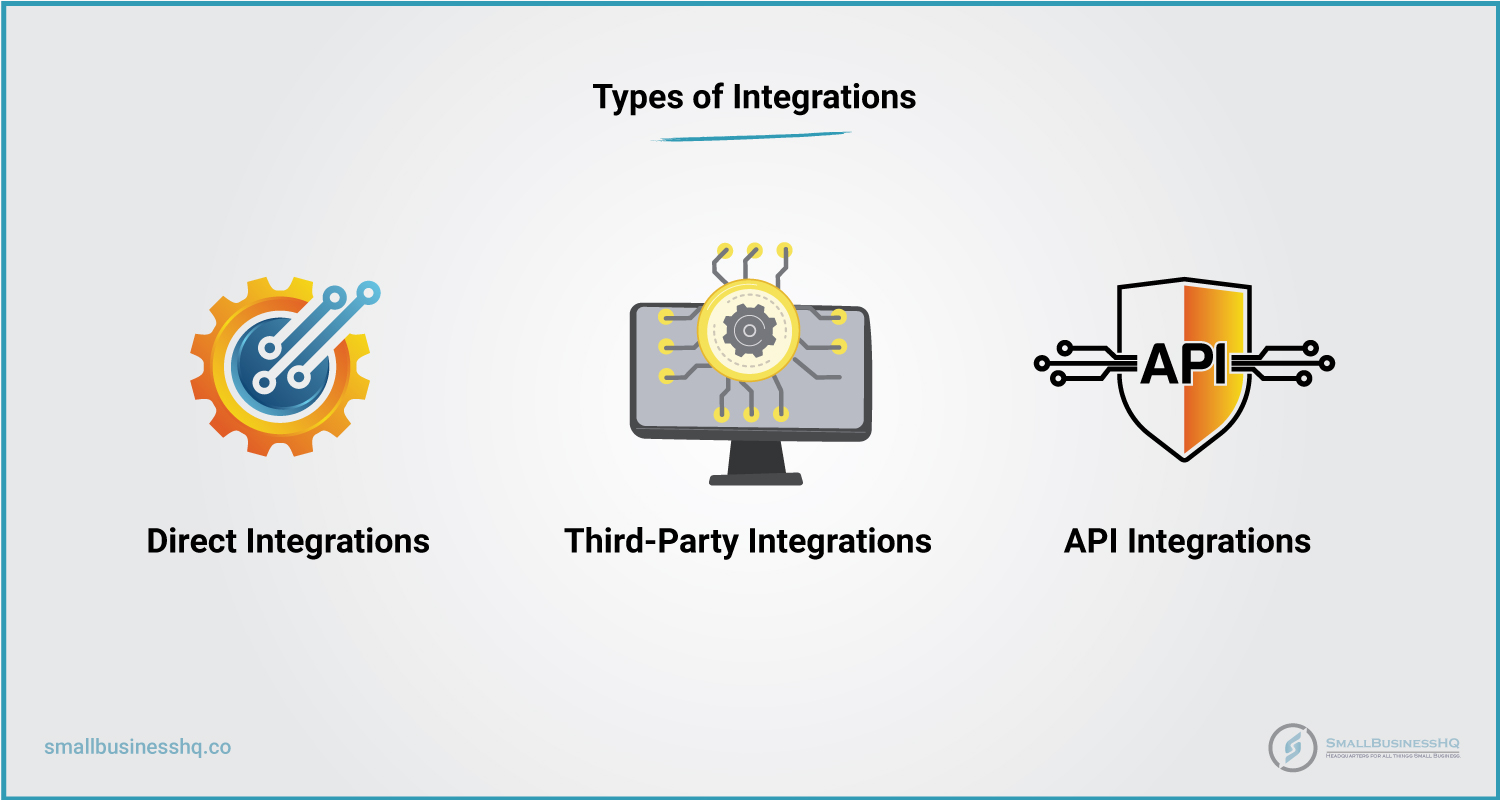
- Data Synchronization: Check how easily customer data is synchronized among different apps. A CRM is most effective when it can not only connect with various apps and platforms but can also integrate data from multiple sources.
5. Purchase and Implementation Costs
One of the biggest CRM mistakes businesses make is considering only the subscription or purchase costs of a CRM when making a buying decision.
What’s wrong with that?
Well, it fails to incorporate the cost of implementing and ongoing maintenance costs of using a CRM solution. If a CRM offers affordable pricing plans but costs a bomb to implement, your overall cost of ownership will increase.
When learning how to evaluate a CRM, one of the best practices you should follow is to consider the pricing structure of different CRM solutions. This way, your CRM investment yields a positive ROI.
If you need help implementing a CRM, here’s a quick illustration showing the essential steps to implement and use a CRM.
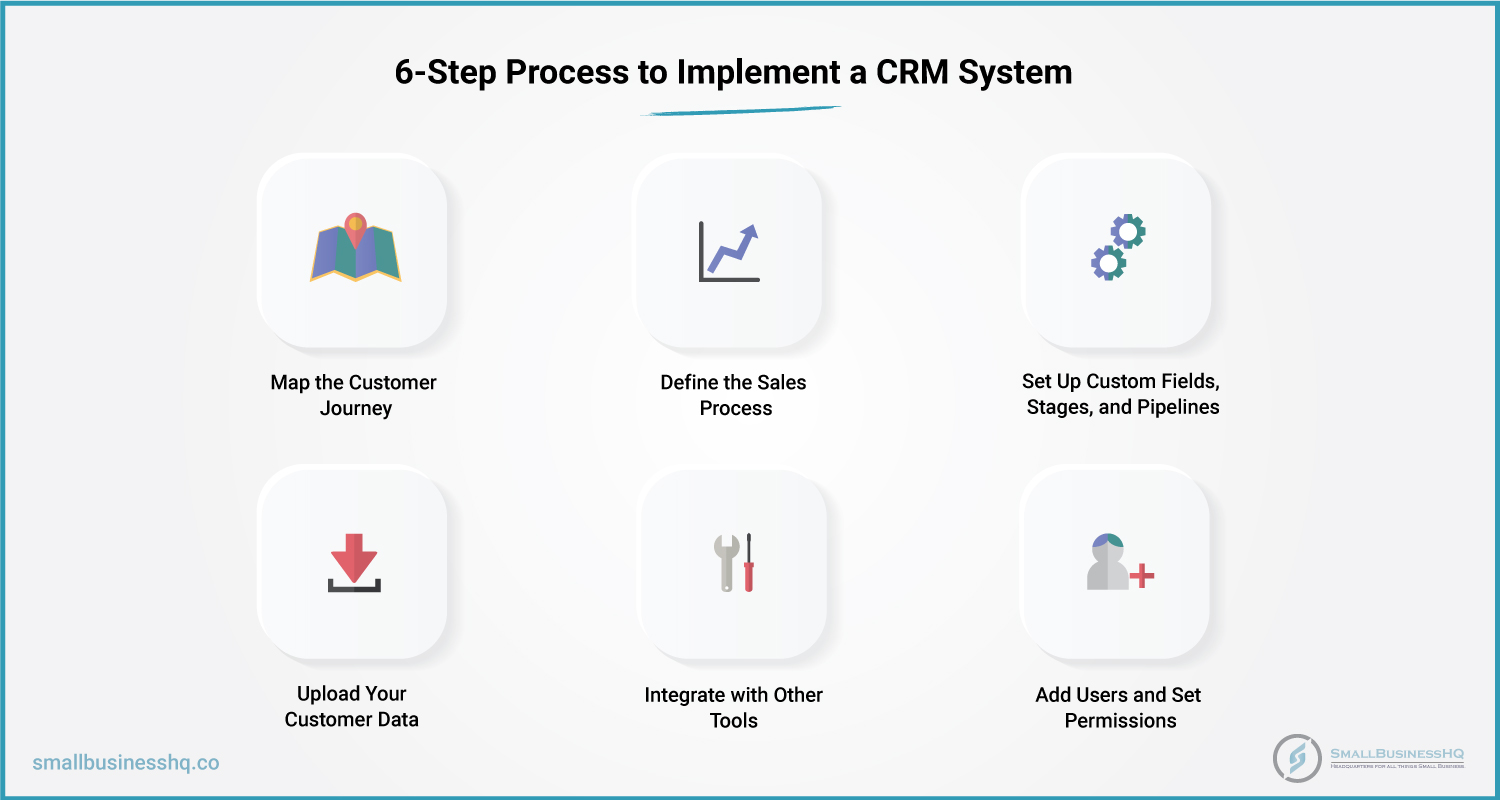
You May Also Like:
6. Customer Support Options
When you evaluate a CRM, one of the things you should look at is the level and quality of support offered by the CRM vendor.
Some CRM vendors offer dedicated support, including phone support, while others offer only email and chat support. Some offer 24/7 support to all customers while others offer support on weekdays during business hours.
Check and compare the customer support options available for each customer relationship management tool before you make the final decision.
Also, check the responsiveness of the support team and the time it typically takes to resolve a customer query. For instance, a good CRM tool should enable sales reps to quickly respond to customer inquiries.
Here’s a quick illustration showing how you can assess the quality of customer support offered by a CRM vendor.
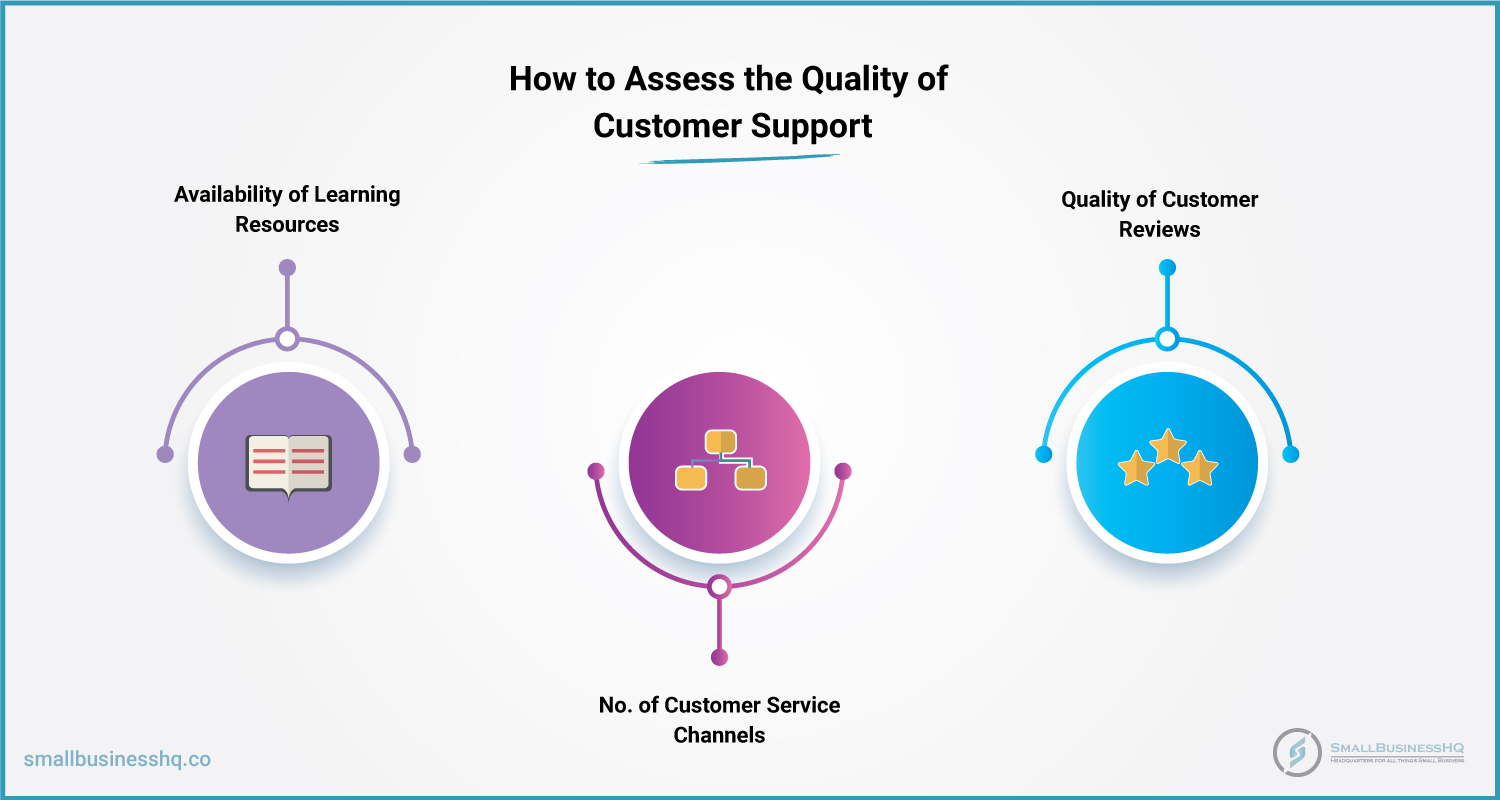
As shown in the image above, the availability of learning resources is also important. For some things, users can find a solution themselves if there are enough resources available.
So, when you evaluate a CRM, make sure you check whether it offers useful tutorials, articles, videos, and other learning resources on its website.
7. Reputation and User Feedback
Lastly, it’s very important to evaluate potential CRM vendors based on their reputation and user reviews on trusted review sites. You want to learn what people are saying about their experience with a vendor.
Especially look for bad user experiences related to user interface, technical issues, and usability. You should also carefully review what current users have to say about the responsiveness of the support team.
This is the final check in the CRM evaluation process before you make a decision.
Check out the reviews and ratings of Bigin by Zoho CRM on Trustpilot, for example.
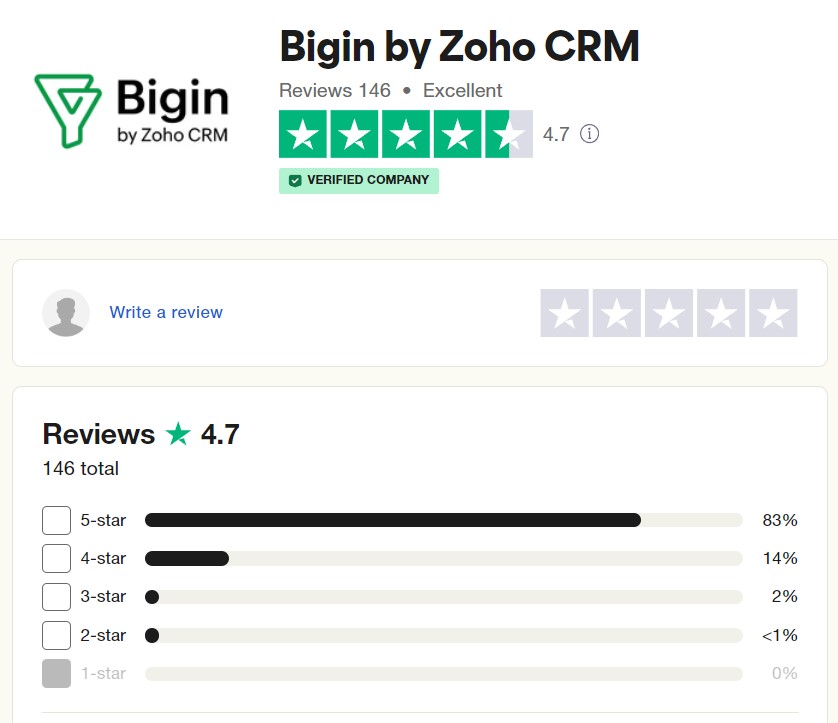
Image via Trustpilot
Though it’s a fairly new platform, the positive reviews are enough to make you trust the CRM.
You May Also Like:
How to Evaluate a CRM: A Step-By-Step Guide
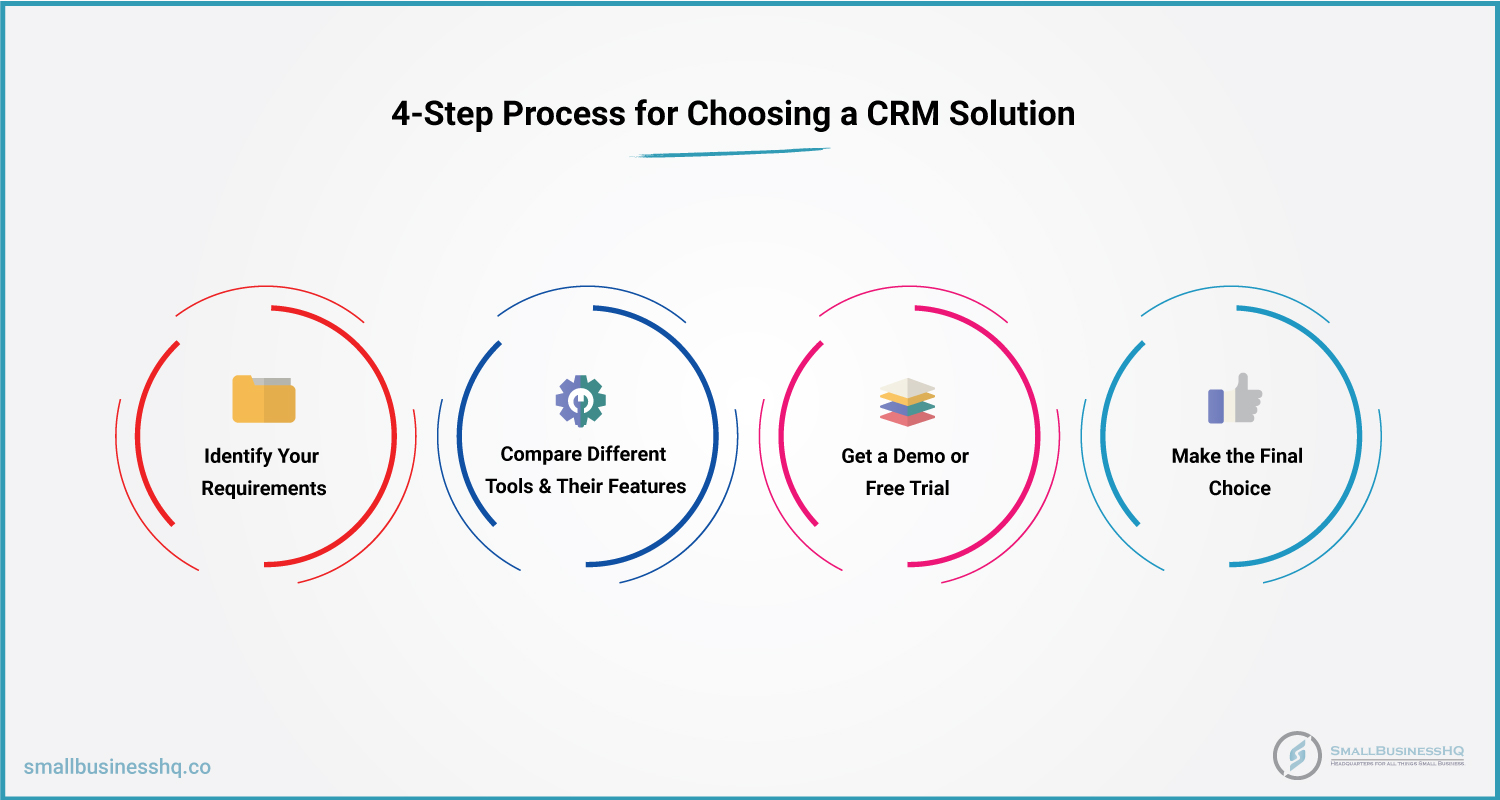
1. Identify Your Requirements
The first step in the CRM evaluation process is to identify your business’s unique requirements and goals.
Ask yourself:
- Why do you need a CRM?
- Who will use the CRM and for what purpose?
- What goals do you want to achieve with the help of a CRM?
Once you have an understanding of what you need, you can start your research and make a list of all the relevant options. This way, you can align the CRM with your business objectives and unique requirements.
2. Compare Various Options
From the available options, filter out the ones that don’t fit your budget or meet your needs. Then, compare the vendor reputation, key features offered, customization capabilities, pricing, integration, and customer support options to shortlist a few options.
You can use a simple table to compare various options and even assign scores. Here’s a basic template you can use or create a more detailed one listing the specific features you need.
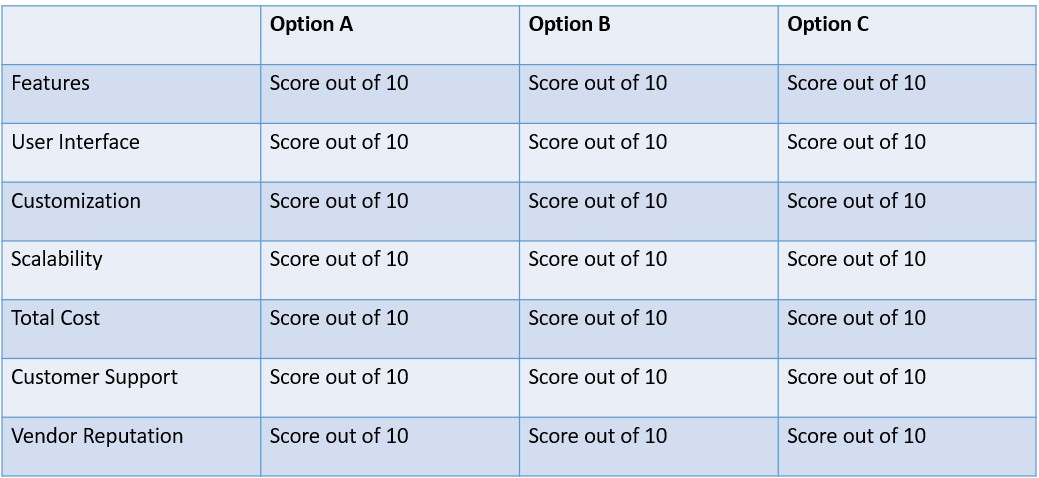
After you’ve assigned the scores on all important parameters, check the totals and shortlist the top three options.
You May Also Like:
3. Get a Demo or Trial
Now, it’s time to do a final round of comparison and see which of the three shortlisted tools have the best user interface and are user-friendly.
Most CRM tools offer a trial or demo option that you can use to evaluate the user interface and navigability. Use the tips listed in the first section of this post to evaluate the user adoption and data security levels of each tool.
Filter out any tool that seems clunky, has an outdated interface, or is difficult to use.
4. Make the Final Choice
The last step in this guide on how to evaluate a CRM is to do a final comparison and finalize the right CRM system for your needs.
If two tools are almost identical in all other aspects, but one is cheaper then you can choose that. Or if two CRM systems have the same features and similar pricing, but one is more user-friendly then that should be your final choice.
Unless a tool emerges as a clear winner based on all the parameters listed above, you will need to make a judgment call at this stage based on your preferences.
You May Also Like:
How to Evaluate a CRM: A Quick Checklist
By now you should be clear on how to evaluate a CRM and choose the best one for your business. Here’s a quick checklist you can use to ensure you don’t miss anything important.
- Identify your business needs and goals
- Make a list of tools that fit your criteria
- Compare and shortlist tools based on the following criteria:
- Core CRM features
- User interface
- Customization options
- Ability to automate tasks
- Scalability and system integration
- Purchase and implementation costs
- Customer support options
- Reputation and user feedback
- Use a free demo or trial to test the interface of the shortlisted options
- Choose a CRM that has all the required features, is easy to use, and fits your budget
You May Also Like:
FAQ
Q1. How do you measure CRM effectiveness?
A. You can use a variety of metrics to evaluate your CRM’s performance. Some of these include:
- Close Rate: This shows the percentage of sales leads in your sales pipeline that got converted. It’s a direct measure of your sales funnel’s effectiveness. If the close rate increases after CRM implementation, it means the CRM is effective.
- Renewal Rate: This is the best metric for subscription-based businesses to track the effectiveness of their CRM systems. If more customers renew their subscriptions, it indicates that your CRM is helping support teams manage customer relationships effectively.
- Net Promoter Score: This metric shows how likely customers are to recommend your business to others. An effective CRM should help you improve customer satisfaction, resulting in a higher NPS.
These are just a few of the many metrics you can track to evaluate whether your CRM is effective.
Q2. How do I review a CRM system?
A. There are many factors to consider when evaluating a CRM. Here are our top recommendations for factors to consider:
- Core CRM features
- User interface and user adoption
- Customization capabilities
- Scalability and system integrations
- Purchase and implementation costs
- Customer support options
- Reputation and user feedback
Q3. Who should be involved in the CRM evaluation process?
A. Ideally, you should involve a cross-functional team with members from various departments that will use the CRM, such as sales teams, marketers, and support teams. This will ensure that you’ll get input from various teams on their CRM requirements when you evaluate a CRM platform.
Q4. What is CRM and evaluation of CRM?
A. CRM stands for Customer Relationship Management. It’s a technology that helps you manage interactions with your customers, both existing and prospective ones. CRM solutions help store customer data, track sales leads, and automate various sales and marketing processes.
On the other hand, evaluating a CRM means assessing how well it meets your business needs. In this case, you want to consider factors like:
- Key features
- Ease of use
- Customization options
- Integration capabilities
- Pricing
- Customer service options
Q5. What are the questions you should ask a CRM vendor?
A. When evaluating potential CRM vendors, ask questions like:
- Do you provide on-premise or cloud hosting for your CRM?
- How easily can the CRM integrate with our existing business processes and tools?
- How long will it take to set up the CRM and how steep is the learning curve?
- What kind of training and support do you provide to ensure high user adoption?
- What are the other costs involved in implementing the CRM, other than the software and subscription costs?
- What data security measures do you have in place to protect our contact data?
- What do you do to ensure that the CRM grows with a business? What scalability features do you offer?
Q6. What are the essential features to look for in a CRM?
A. Depending on the type of CRM, you may get a wide variety of features that will differ from one CRM to another. However, there are certain core CRM features that almost all tools offer. These include:
- Contact management to organize and manage contact data
- Lead management to track and nurture sales leads
- Workflow automation for sales processes and marketing campaigns
- Analytics and reporting to track sales performance and key performance indicators
Q7. How can a CRM help me personalize my marketing campaigns?
A. Personalization is one of the most important ingredients for effective marketing, and a customer relationship management system can help you take your campaigns to the next level.
Because it stores detailed information about your leads and customers, a CRM allows you to segment your audience based on various criteria, such as:
- Demographics
- Geographic segmentation
- Interests
- Engagement levels
- Past interactions with your brand
This means you can create targeted marketing messages that resonate with each segment, increasing the likelihood of engagement and conversion. In fact, some CRM solutions offer built-in marketing automation tools, allowing you to set up triggered email campaigns based on specific actions or milestones.
Q8. How often should I re-evaluate my CRM system?
A. Regardless of size, your business is constantly evolving. And, as such, your CRM should keep pace. That said, plan to reassess your CRM at least once a year to ensure it’s still meeting your needs effectively.
Meanwhile, key events like company growth, process changes, or shifts in customer behavior may signal that it’s time for a CRM evaluation.
Bear in mind that a CRM is not a one-off purchase; it’s a long-term investment. So, regular check-ins will help you maximize its value and impact.
Q9. What should I do if I’m unsure about which CRM is right for my business?
A. If you’re feeling overwhelmed by the many CRM options out there, take a step back and focus on your business goals.
What do you want to achieve with a CRM? Are you trying to increase sales, improve customer retention, or streamline your sales process? Once you have a clear picture of your objectives, you can prioritize the CRM features and capabilities that will help you attain those goals.
Conclusion
There you have it—a complete guide on how to evaluate a CRM and choose one that helps your business succeed.
Make sure you are clear on which parameters are most important to your business and use those as the final deciding factors.
Also, consider the total cost of ownership of a CRM solution when comparing prices.
Need help finding the right tool for your business? Check out our list of the top CRM software to get started.


